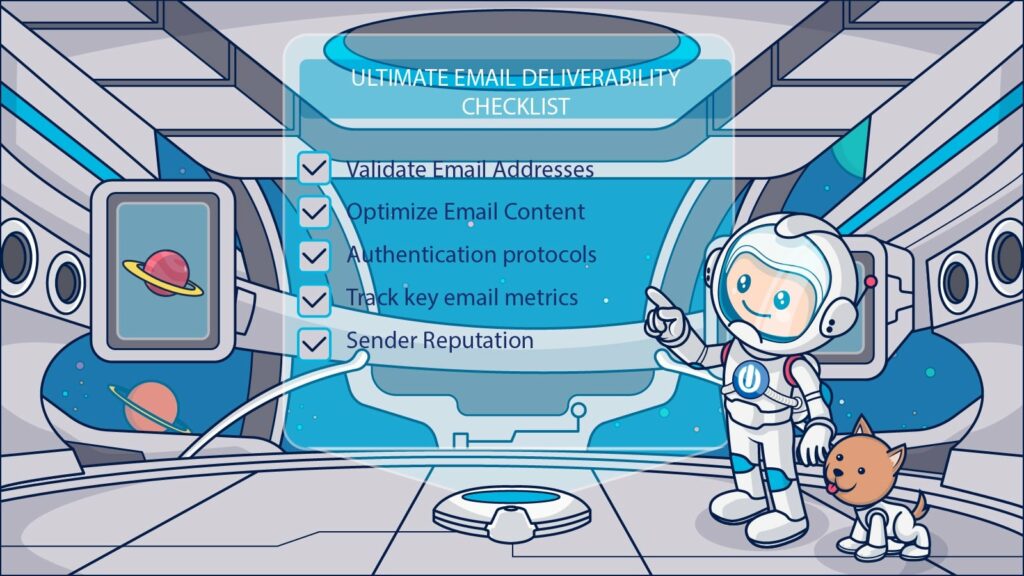Before conversions, transactions, and revenue come into play, trust is the first currency of business. That’s what email marketing is all about – connecting with people, building trust, and creating long-lasting relationships between brands and customers.
However, building the foundational trust for such relationships can be difficult.
As an email marketer, you should employ every measure at your disposal to help you convey your authenticity to your subscribers. That means carefully crafting every aspect of your emails, as seemingly small details can have a major effect on how your subscribers perceive your brand.
Your email sender name is an example of one such detail and can be considered as an opportunity to optimize your email subject line.
What is a sender name?
Your email sender name, or “from” name, is the name that appears in the inbox of your recipient, typically to the left-hand side of your email’s subject line. It lets the recipient know who sent them the message in question.
Your sender name isn’t your sender address, which is the email address you send mail from and which includes your domain name.
Why is email sender name important?
Though it’s only made up of a small number of total characters, your sender name plays a major role in how subscribers perceive your brand. It can make them more or less likely to actually open your emails, so it can have a very real impact on the success of your campaigns.
Having a strong sender name is important for the following reasons.
Signal that you are a reputable sender
When email users are browsing through their inboxes and deciding which messages to open, they typically make their minds up quite quickly.
This is because the majority of email users are savvy enough to spot spammers and other untrustworthy senders, and can often do so with just a cursory glance at their sender name.
For this reason, it is key to create a sender name that lets users know they are being contacted by a bona fide company with genuine intentions.
Establish a consistent identity among subscribers
When your subscribers receive a message from you, you want them to recognize that fact immediately. As such, having a clear sender name that informs users of who they’re communicating with and why is a good way to improve performance across key metrics.
In addition, establishing a clear and memorable sender name can help with brand recognition and familiarity with your company name. Consistently using an established sender name can build your reputation among subscribers and place you at the front of their minds going forward.
How to make an effective sender name
Using your sender name to benefit your brand is not overly difficult, but there are some principles that are advisable to keep in mind when creating your email sender name.
Align your name and address
First and foremost, your sender name should always align with your sender address. Senders who fail to do this create an impression of inconsistency and untrustworthiness, which is something every marketer wants to avoid.
In doing this, ensure that you choose a sender address that is representative of your brand’s domain, rather than a free address from a mailbox provider or a no-reply address.
This helps create an air of professionalism and accountability around your emails and shows that your brand is to be taken seriously.
In many cases, you may want to use sender addresses that indicate the purpose of the communication, such as support@yourcompany for customer support emails. This provides a level of transparency that can help subscribers feel much more at home with your brand.
Use segmentation to your advantage
If you’re already using segmentation to send subscribers personalized content, you should make the effort to apply this principle to your sender name, as well.
Depending on why you’re sending out certain emails, you may benefit from using different sender names for different purposes.
For example, for straightforward marketing content aimed at increasing brand awareness, you may choose to use your brand name as your sender name to increase recognition.
However, if you are attempting to nurture a lead and encourage subscribers to follow a call-to-action, something more personal may be in order.
In this case, you may consider using the first name of someone at your organization, such as “James from YourCompany.” This is a simple but effective way to communicate your authenticity and personalize the experience for recipients.
Conclusion
Your sender name is a small aspect of your email, comprising just 20 or 30 characters in many cases. As a result, sender names are often overlooked, as many email marketers spend the bulk of their time perfecting subject lines, preheaders, and body content.
However, a strong sender name brings considerable value to your email campaigns. Crafting an effective sender name is worth your close attention in the same way more prominent elements do.
By establishing a clear and memorable sender name that conveys your identity and intentions to the reader, you can build your brand reputation, improve your performance in key metrics, and increase the overall success rate of your email campaigns.













